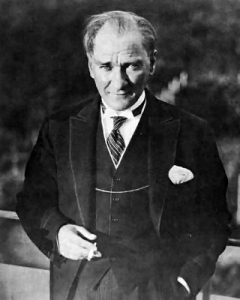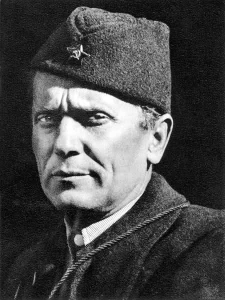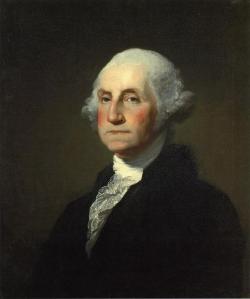“6: Fallacy and extravagance…”
6: “Fallacy and extravagance…”
The Federalist 6: Concerning Dangers from Dissensions Between the States. First published November 14, 1787. Author Alexander Hamilton. Please see Introducing the American Bible for an introduction to this project.
Reverence for the Founders is an established American devotional activity. All countries have hagiography, to be sure—Turkey has its Ataturk, Chinese their Mao, Yugoslavs the beloved Tito. Yet as the above sampling indicates, most countries must regard these founding fathers (for, sadly, they are nearly all men) with ambivalence.
Ataturk, for all his liberal virtues, had an autocratic tendency and a devotion to alcohol which led to his early death. The man who secured Turkey’s secular future also bred into its generals a devotion to secular principles so deep that they would imprison numerous democratically-elected Islamists, and ban the holy Muslim pilgrimage to Mecca. Today, Turks remember him with a mix of manic devotion (secularists, the army) and a faint discomfort (Islamists).
Mao, of course, is a world of complication unto himself. To be sure, he birthed China through innumerable difficulties. Yet he did so at a cost of untold millions of lives lost to mismanagement, intolerance, and outright slaughter. What price nationhood?
As for Tito, he is still widely revered throughout the former Yugoslavia. To be sure, he presided over years of solid economic growth, and held together the fractious Yugoslavian republics. He even managed to play the two superpowers off one another to Yugoslavia’s benefit, always managing to deftly avoid too much outside interference. Yet financing the Yugoslav dream required fat soft loans from Western governments and banks, and Yugoslavia’s deteriorating finances from the 1980s onward helped lead to the disastrous 1990s. Not to mention, of course, the Goli Otok prison camp where political prisoners were beaten, starved, and sometimes even worked to death.

The founder of modern Turkey, Ataturk is so beloved that his first name has become an adjective for Turkey’s secular, Western-style government: “Kemalist”
And so, how do America’s Founders stack up? They, too, have their guilty legacies. Uppermost among these, of course, is slavery—the American original sin, enmeshed in the Constitution itself and practiced by some of our most figures. If slavery was the most pressing moral test of the times, then many of our beloved Founders flunked.
Thomas Jefferson repudiated slavery, but largely in private notes and letters where it would not cost him anything. James Madison was said to have refrained from physical violence towards his slaves; but I think we can agree that is a low bar indeed. George Washington famously released his 317 slaves—in his will.
But beyond this singular sin, America does seem to have been blessed with an unusually virtuous lot of founding heroes. Beyond slavery, perhaps their next greatest “failing” was that so many of them were rich (many), male (nearly all), and white (essentially without exception). Yet if that was a failing, it was a failure of the entire era, and I think we can forgive them that.
And against this, we must set their most astonishing virtue: They stepped aside. The other geniuses I mentioned above—Ataturk, Mao, Tito—all clung to power as long as their bodies held out. Each, as a result, doomed their countries to years of instability when death finally pried their hands from the scepter. Nor are they the only brilliant, devoted founders who eventually gave in to the desire to power. On the contrary, history is littered with such men: the brothers Castro; Bismarck; even Muammar Gaddafi seems to have begun his career as something of an idealist.
And yet, beginning with Washington leaving voluntarily after his second presidential term, all of America’s early leaders eventually stepped aside to allow young blood a chance. Even today, it seems, leaders are willing to throw away their chance at posterity to hold onto power just a little longer. Even as I write, Egypt’s first democratically-elected president, Muhammad Morsi, is ramming through a new constitution that grants him Mubarak-like powers. His country is once more on the brink of chaos, due to his simple arrogance and disregard for his opponents.
Perhaps America’s founders were special, then. They had a quality extremely uncommon in such special men: humility.[1]
Follow me @AwesomeSchaefer to get updates on new posts!
-
Today’s column is, the reader may notice, only barely-related to the Federalist papers. Hamilton’s return column largely reiterates what Jay has said in previous weeks; but a brief aside of his on the willingness of powerful men to “sacrifice the national tranquillity to personal advantage” reminded me of how lucky America is to have been founded by people smart enough to not trust themselves. ↩


